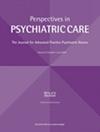丈夫对改善孕妇焦虑障碍的期望和参与表现:一项定性研究
IF 1.9
4区 医学
Q2 NURSING
引用次数: 0
摘要
目的。丈夫的参与对产妇保健方案的成功至关重要。在包括心理健康在内的所有方面都强调这种参与。本研究旨在探讨丈夫的期望及参与表现对改善孕妇焦虑的影响。设计和方法。通过有针对性的便利抽样,在两家公立和私立妇产保健中心进行了描述性质的研究。在DSM-5 (SCID-5)的结构化临床访谈中,30名怀孕13 - 38周的女性被诊断为焦虑障碍,16名丈夫经历了半结构化的深度定性访谈。采用MAXQDA软件(版本18)进行常规内容分析提取数据。发现。从男性和女性的角度,在情感、行为和认知三个主题上产生丈夫对降低孕妇焦虑的期望和参与性表现。大约70%的副主题在女性和男性中是共同的,其中包括情感(情感心理支持,加强口头交流,获得关注和爱,创造娱乐领域),行为(跟踪母亲和胎儿的健康,参与家务,适应情绪变化,物质和经济供应,以及分娩期间的陪伴),和认知(增加在怀孕领域的知识和解决冲突的能力)。然而,男性和女性的主题有一些差异。实践意义。男性强调调整沟通期望和积极改变生活方式,而焦虑的女性则强调获得关注和爱、姿态良好、分娩陪伴和忠诚是影响疾病改善的重要因素。本文章由计算机程序翻译,如有差异,请以英文原文为准。
Expectations and Participatory Performance of Husbands in Improvement of Anxiety Disorders in Pregnant Women: A Qualitative Study
Purpose. Husbands’ participation is important in the success of maternal health programs. This participation is emphasized in all dimensions including mental health. This study was conducted to examine the husband’s expectations and participatory performance to improve anxiety in pregnant women. Design and Methods. A descriptive qualitative study was conducted via targeted convenience sampling in two public and private maternity care centers. 30 women who were 13–38-week pregnant were diagnosed with anxiety disorder in a Structured Clinical Interview for the DSM-5 (SCID-5), and 16 husbands experienced a semistructured in-depth qualitative interview. Data were extracted by the conventional content analysis using MAXQDA software (version 18). Findings. Husbands’ expectations and participatory performance to reduce the anxiety of pregnant women were produced in three themes of emotion, behavior, and cognition in terms of the men’s and women’s perspectives. Approximately 70% of subthemes were common among women and men which included emotion (emotional psychological support, strengthening verbal communication, receiving attention and love, and creating a field of entertainment), behavior (following up on mother and fetus’s health, participation in housekeeping, compatibility to mood changes, material and financial provision, and companionship during childbirth), and cognition (increasing the knowledge in the field of pregnancy and the ability to resolve conflict). However, the men’s and women’s themes had some differences. Practice Implications. While men emphasized adjusting communication expectations and making positive changes in lifestyle, anxious women emphasized the themes of receiving attention and love, well-posedness, companionship in childbirth, and loyalty as important factors influencing the improvement of their disease.
求助全文
通过发布文献求助,成功后即可免费获取论文全文。
去求助
来源期刊
CiteScore
5.00
自引率
4.30%
发文量
139
审稿时长
>12 weeks
期刊介绍:
Perspectives in Psychiatric Care (PPC) is recognized and respected as THE journal for advanced practice psychiatric nurses. The journal provides advanced practice nurses with current research, clinical application, and knowledge about psychiatric nursing, prescriptive treatment, and education. It publishes peer-reviewed papers that reflect clinical practice issues, psychobiological information, and integrative perspectives that are evidence-based. Perspectives in Psychiatric Care includes regular columns on the biology of mental illness and pharmacology, the art of prescribing, integrative perspectives, and private practice issues.

 求助内容:
求助内容: 应助结果提醒方式:
应助结果提醒方式:


